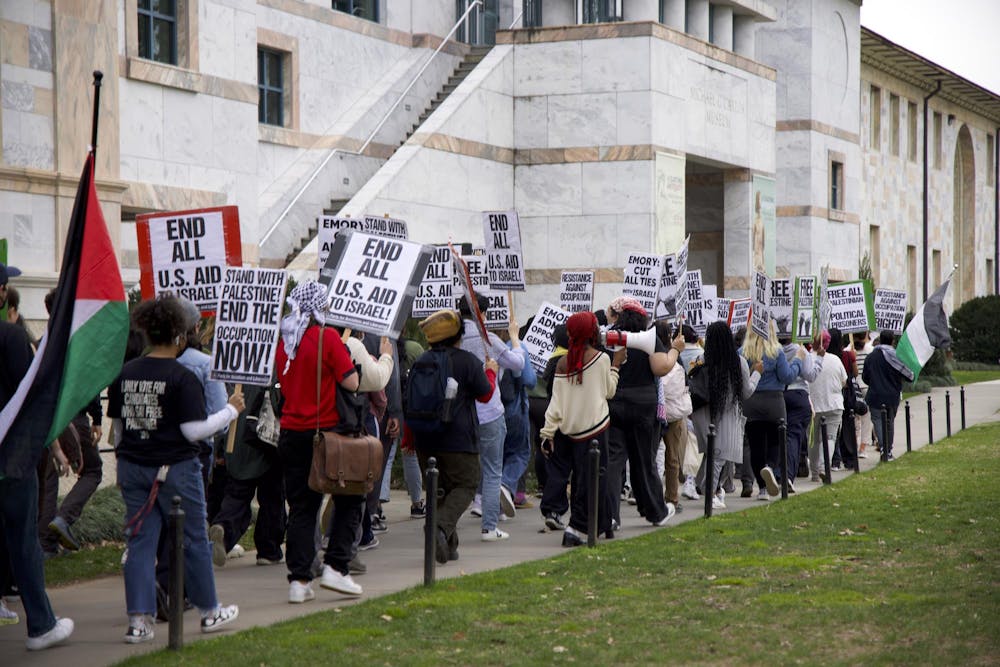The Emory University Senate voted on Dec. 4 to call for the revision of the Respect for Open Expression Policy addendum to allow for muti-day and overnight protests. University President Gregory Fenves implemented the addendum without consulting the Senate in August to prohibit encampments and overnight protests on campus, igniting controversy.
In passing the resolution calling for revision, the Senate also accepted the Committee for Open Expression’s report on reviewing the addendum. The review included suggestions for changes to the current open expression policy and requested that the University administration consult the Senate before making revisions to the open expression policy and “other important policies.”
The Committee for Open Expression shared the report with Senate members on Nov. 30. The report’s main recommendation is to permit students to reserve buildings and grounds for overnight and multi-day protests using “more flexible, content-neutral regulations.” This could include approvals based on criteria such as the expected level of disruption or the security resources needed at an event, according to the report.
The resolution states that the University should revise the addendum to align with these recommendations, noting that implementing this property management system would ensure safety while minimizing academic disruptions. However, this recommendation sparked debate among Senate members.
University Senate President George Shepherd expressed support for the current open expression addendum’s ban on encampments.
“I agree that there should not be encampments,” Shepherd said. “I want to be able to use the public areas of the University and not have them occupied by somebody else.”
Former Committee for Open Expression Chair Alexander Volokh agreed with Shepherd’s opinion but acknowledged the need for clearer definitions in the addendum.
“I’m not a fan of encampments, and so when I first read the addendum, I thought, ‘OK, no encampments — finally, we all have a rule about that,’” Volokh said. “But I also recognize that once you start saying, ‘What is an encampment? Is it anything with a tent?’ Then… not everything is, what I would imagine, is a bad encampment.”
Shepherd proposed an amendment to the resolution asking the University administration to clarify terms in the addendum. However, the Senate did not vote on the amendment.
Student Government Association President Abigail Dubinski (25B) also raised concerns about the resolution's consideration of safety. She questioned why the Committee for Open Expression viewed protocols outlined in the open expression addendum as restrictive.
“I wish safety was more of a concern that you all discussed,” Dubinski said.
Assistant Vice President of University Communications Laura Diamond acknowledged the committee’s efforts in an email to The Emory Wheel.
"Emory is grateful to the Committee for their work to help improve our support of Open Expression and is reviewing the report and its recommendations,” Diamond said.
Shepherd will send the passed resolution to the Board of Trustees, which can evaluate the recommendations and decide on any policy changes for the University.










